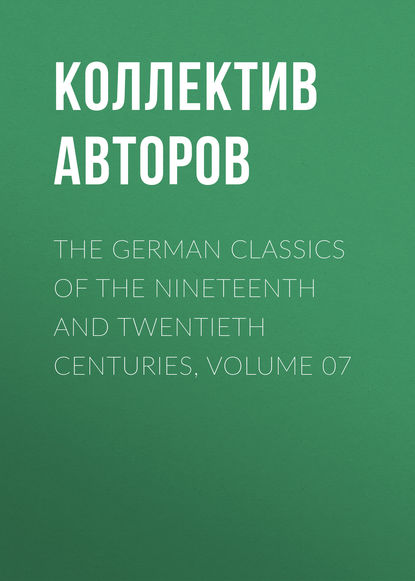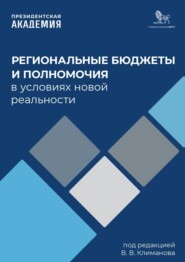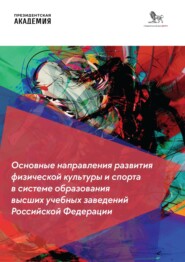По всем вопросам обращайтесь на: info@litportal.ru
(©) 2003-2024.
✖
The German Classics of the Nineteenth and Twentieth Centuries, Volume 07
Настройки чтения
Размер шрифта
Высота строк
Поля
The true State is the ethical whole and the realization of freedom. It is the absolute purpose of reason that freedom should be realized. The State is the spirit, which lives in the world and there realizes itself consciously; while in nature it is actual only as its own other or as dormant spirit. Only as present in consciousness, knowing itself as an existing object, is it the State. The State is the march of God through the world, its ground is the power of reason realizing itself as will. The idea of the State should not connote any particular State, or particular institution; one must rather consider the Idea only, this actual God, by itself. Because it is more easy to find defects than to grasp the positive meaning, one readily falls into the mistake of emphasizing so much the particular nature of the State as to overlook its inner organic essence. The State is no work of art. It exists in the world, and thus in the realm of caprice, accident, and error. Evil behavior toward it may disfigure it on many sides. But the ugliest man, the criminal, the invalid, and the cripple, are still living human beings. The affirmative, life, persists in spite of defects, and it is this affirmative which alone is here in question.
In the State, everything depends upon the unity of the universal and the particular. In the ancient States the subjective purpose was absolutely one with the will of the State. In modern times, on the contrary, we demand an individual opinion, an individual will and conscience. The ancients had none of these in the modern sense; the final thing for them was the will of the State. While in Asiatic despotisms the individual had no inner self and no self-justification, in the modern world man demands to be honored for the sake of his subjective individuality.
The union of duty and right has the twofold aspect that what the State demands as duty should directly be the right of the individual, since the State is nothing but the organization of the concept of freedom. The determinations of the individual will are given by the State objectivity, and it is through the State alone that they attain truth and realization. The State is the sole condition of the attainment of the particular end and good.
Political disposition, called patriotism—the assurance resting in truth and the will which has become a custom—is simply the result of the institutions subsisting in the State, institutions in which reason is actually present.
Under patriotism one frequently understands a mere willingness to perform extraordinary acts and sacrifices. But patriotism is essentially the sentiment of regarding, in the ordinary circumstances and ways of life, the weal of the community as the substantial basis and the final end. It is upon this consciousness, present in the ordinary course of life and under all circumstances, that the disposition to heroic effort is founded. But as people are often rather magnanimous than just, they easily persuade themselves that they possess the heroic kind of patriotism, in order to save themselves the trouble of having the truly patriotic sentiment, or to excuse the lack of it.
Political sentiment, as appearance, must be distinguished from what people truly will. What they at bottom will is the real cause, but they cling to particular interests and delight in the vain contemplation of improvements. The conviction of the necessary stability of the State in which alone the particular interests can be realized, people indeed possess, but custom makes invisible that upon which our whole existence rests; it does not occur to any one, when he safely passes through the streets at night, that it could be otherwise. The habit of safety has become a second nature, and we do not reflect that it is the result of the activity of special institutions. It is through force this is frequently the superficial opinion-that the State coheres, but what alone holds it together is the fundamental sense of order, which is possessed by all.
The State is an organism or the development of the idea into its differences. These different sides are the different powers of the State with their functions and activities, by means of which the universal is constantly and necessarily producing itself, and, being presupposed in its own productive function, it is thus always actively present. This organism is the political constitution. It eternally springs from the State, just as the State in turn maintains itself through the constitution. If these two things fall asunder, if both different sides become independent of each other, then the unity which the constitution produces is no longer operative; the fable of the stomach and the other organs may be applied to it. It is the nature of an organism that all its parts must constitute a certain unity; if one part asserts its independence the other parts must go to destruction. No predicates, principles, and the like suffice to express the nature of the State; it must be comprehended as an organism.
The State is real, and its reality consists in the interest of the whole being realized in particular ends. Actuality is always the unity of universality and particularity, and the differentiation of the universal into particular ends. These particular ends seem independent, though they are borne and sustained by the whole only. In so far as this unity is absent, no thing is real, though it may exist. A bad State is one which merely exists. A sick body also exists; but it has no true reality. A hand, which is cut off, still looks like a hand and exists, but it has no reality. True reality is necessity. What is real is internally necessary.
To the complete State belongs, essentially, consciousness and thought. The State knows thus what it wills, and it knows it under the form of thought.
The essential difference between the State and religion consists in that the commands of the State have the form of legal duty, irrespective of the feelings accompanying their performance; the sphere of religion, on the other hand, is in the inner life. Just as the State, were it to frame its commands as religion does, would endanger the right of the inner life, so the church, if it acts as a State and imposes punishment, degenerates into a tyrannical religion.
In the State one must want nothing which is not an expression of rationality. The State is the world which the spirit has made for itself; it has therefore a determinate and self-conscious course. One often speaks of the wisdom of God in nature, but one must not believe that the physical world of nature is higher than the world of spirit. Just as spirit is superior to nature, so is the State superior to the physical life. We must therefore adore the State as the manifestation of the divine on earth, and consider that, if it is difficult to comprehend nature, it is infinitely harder to grasp the essence of the State. It is an important fact that we, in modern times, have attained definite insight into the State in general and are much engaged in discussing and making constitutions; but that does not advance the problem much. It is necessary to treat a rational matter in the light of reason, in order to learn its essential nature and to know that the obvious does not always constitute the essential.
When we speak of the different functions of the powers of the State, we must not fall into the enormous error of supposing each power to have an abstract, independent existence, since the powers are rather to be differentiated as elements in the conception of the State. Were the powers to be in abstract independence, however, it is clear that two independent things could never constitute a unity, but must produce war, and the result would be destruction of the whole or restoration of unity by force. Thus, in the French Revolution, at one time the legislative power had swallowed up the executive, at another time the executive had usurped the legislative power.
THE CONSTITUTION
The constitution is rational, in so far as the State defines and differentiates its functions according to the nature of its concept.
Who shall make the constitution? This question seems intelligible, yet on closer examination reveals itself as meaningless, for it presupposes the existence of no constitution, but only a mere mass of atomic individuals. How a mass of individuals is to come by a constitution, whether by its own efforts or by those of others, whether by goodness, thought, or force, it must decide for itself, for with a disorganized mob the concept of the State has nothing to do. But if the question does presuppose an already existing constitution, then to make a constitution means only to change it. The presupposition of a constitution implies, however, at once, that any modification in it must take place constitutionally. It is absolutely essential that the constitution, though having a temporal origin, should not be regarded as made. It (the principle of constitution) is rather to be conceived as absolutely perpetual and rational, and therefore as divine, substantial, and above and beyond the sphere of what is made.
Subjective freedom is the principle of the whole modern world—the principle that all essential aspects of the spiritual totality should develop and attain their right. From this point of view one can hardly raise the idle question as to which form is the better, monarchy or democracy. One can but say that the forms of all constitutions are one-sided that are not able to tolerate the principle of free subjectivity and that do not know how to conform to the fully developed reason.
Since spirit is real only in what it knows itself to be, and since the State, as the nation's spirit, is the law permeating all its affairs, its ethical code, and the consciousness of its individuals, the constitution of a people chiefly depends upon the kind and the character of its self-consciousness. In it lies both its subjective freedom and the reality of the constitution.
To think of giving a people a constitution a priori, though according to its content a more or less rational one—such a whim would precisely overlook that element which renders a constitution more than a mere abstract object. Every nation, therefore, has the constitution which is appropriate to it and belongs to it.
The State must, in its constitution, permeate all situations. A constitution is not a thing just made; it is the work of centuries, the idea and the consciousness of what is rational, in so far as it is developed in a people. No constitution, therefore, is merely created by the subjects of the State. The nation must feel that its constitution embodies its right and its status, otherwise the constitution may exist externally, but has no meaning or value. The need and the longing for a better constitution may often indeed be present in individuals, but that is quite different from the whole multitude being permeated with such an idea—that comes much later. The principle of morality, the inwardness of Socrates originated necessarily in his day, but it took time before it could pass into general self-consciousness.
THE POWER OF THE PRINCE
Because sovereignty contains in ideal all special privileges, the common misconception is quite natural, which takes it to be mere force, empty caprice, and synonymous with despotism. But despotism means a state of lawlessness, in which the particular will as such, whether that of monarch or people (ochlocracy), is the law, or rather instead of the law. Sovereignty, on the contrary, constitutes the element of ideality of particular spheres and functions under lawful and constitutional conditions.
The sovereignty of the people, conceived in opposition to the sovereignty residing in the monarch, stands for the common view of democracy, which has come to prevail in modern times. The idea of the sovereignty of the people, taken in this opposition, belongs to a confused idea of what is commonly and crudely understood by "the people." The people without its monarch and without that whole organization necessarily and directly connected with him is a formless mass, which is no longer a State. In a people, not conceived in a lawless and unorganized condition, but as a self-developed and truly organic totality—in such a people sovereignty is the personality of the whole, and this is represented in reality by the person of the monarch.
The State must be regarded as a great architectonic edifice, a hieroglyph of reason, manifesting itself in reality. Everything referring merely to utility, externality, and the like, must be excluded from its philosophic treatment. That the State is the self-determining and the completely sovereign will, the final decision being necessarily referred to it—that is easy to comprehend. The difficulty lies in grasping this "I will" as a person. By this it is not meant that the monarch can act arbitrarily. He is bound, in truth, by the concrete content of the deliberations of his council, and, when the constitution is stable, he has often nothing more to do than to sign his name—but this name is important; it is the point than which there is nothing higher.
It may be said that an organic State has already existed in the beautiful democracy of Athens. The Greeks, however, derived the final decision from entirely external phenomena, from oracles, entrails of sacrificial animals, and from the flight of birds. Nature they considered as a power which in this wise made known and gave expression to what was good for the people. Self-consciousness had at that time not yet attained to the abstraction of subjectivity; it had not yet come to the realization that an "I will" must be pronounced by man himself concerning the decisions of the State. This "I will" constitutes the great difference between the ancient and the modern world, and must therefore have its peculiar place in the great edifice of the State. Unfortunately this modern characteristic is regarded as merely external and arbitrary.
It is often maintained against the monarch that, since he may be ill-educated or unworthy to stand at the helm of the State, its fortunes are thus made to depend upon chance. It is therefore absurd to assume the rationality of the institution of the monarch. The presupposition, however, that the fortunes of the State depend upon the particular character of the monarch is false. In the perfect organization of the State the important thing is only the finality of formal decision and the stability against passion. One must not therefore demand objective qualification of the monarch; he has but to say "yes" and to put the dot upon the "i." The crown shall be of such a nature that the particular character of its bearer is of no significance. Beyond his function of administering the final decision, the monarch is a particular being who is of no concern. Situations may indeed arise in which his particularity alone asserts itself, but in that case the State is not yet fully developed, or else is ill constructed. In a well-ordered monarchy the law alone has objective power to which the monarch has but to affix the subjective "I will."
Monarchs do not excel in bodily strength or intellect, and yet millions permit themselves to be ruled by them. To say that the people permit themselves to be governed contrary to their interests, aims, and intentions is preposterous, for people are not so stupid. It is their need, it is the inner power of the idea, which, in opposition to their apparent consciousness, urges them to this situation and retains them therein.
Out of the sovereignty of the monarch flows the prerogative of pardoning criminals. Only to the sovereignty belongs the spiritual power to undo what has been done and to cancel the crime by forgiving and forgetting.
Pardon is the remission of punishment, but does not abolish right. Right remains, and the pardoned is a criminal as he was before the pardon. The act of mercy does not mean that no crime has been committed. This remission of punishment may be effected in religion, for by and in spirit what has been done can be made un-done. But in so far as remission occurs in the world, it has its place only in majesty and is due only to its arbitrary decision.
THE EXECUTIVE
The main point upon which the function of the government depends is the division of labor. This division is concerned with the transition from the universal to the particular and the individual; and the business is to be divided according to the different branches. The difficulty lies in harmonizing the superior and the inferior functions. For some time past the main effort has been spent in organizing from above, the lower and bulky part of the whole being left more or less unorganized; yet it is highly important that it should become organic, for only thus is it a power and a force; otherwise it is but a heap or mass of scattered atoms. Authoritative power resides only in the organic state of the particular spheres.
The State cannot count on service which is capricious and voluntary (the administration of justice by knights-errant, for instance), precisely because it is capricious and voluntary. Such service presupposes acting according to subjective opinion, and also the possibility of neglect and of the realization of private ends. The opposite extreme to the knight-errant in reference to public service would be the State-servant who was attached to his task solely by want, without genuine duty and right.
The efficiency of the State depends upon individuals, who, however, are not entitled to carry on the business of the State through natural fitness, but according to their objective qualification. Ability, skill, character, belong to the particular nature of the individual; for a particular office, however, he must be specially educated and trained. An office in the State can, therefore, be neither sold nor bequeathed.
Public service demands the sacrifice of independent self-satisfaction and the giving up of the pursuit of private ends, but grants the right of finding these in dutiful service, and in it only. Herein lies the unity of the universal and the particular interests which constitutes the concept and the inner stability of the State.
The members of the executive and the officials of the State form the main part of the middle class which represents the educated intelligence and the consciousness of right of the mass of a people. This middle class is prevented by the institutions of sovereignty from above and the rights of corporation from below, from assuming the exclusive position of an aristocracy and making education and intelligence the means for caprice and despotism. Thus the administration of justice, whose object is the proper interest of all individuals, had at one time been perverted into an instrument of gain and despotism, owing to the fact that the knowledge of the law was hidden under a learned and foreign language, and the knowledge of legal procedure under an involved formalism.
In the middle class, to which the State officials belong, resides the consciousness of the State and the most conspicuous cultivation: the middle class constitutes therefore the ground pillar of the State in regard to uprightness and intelligence. The State in which there is no middle class stands as yet on no high level.
THE LEGISLATURE
The legislature is concerned with the interpretation of the laws and with the internal affairs of the State, in so far as they have a universal content. This function is itself a part of the constitution and thus presupposes it. Being presupposed, the constitution lies, to that degree, outside the direct province of the legislature, but in the forward development of the laws and the progressive character of the universal affairs of government, the constitution receives its development also.
The constitution must alone be the firm ground on which the legislature stands; hence it must not be created for purposes of legislation. But the constitution not only is, its essence is also to become—that is, it progresses with the advance of civilization. This progress is an alteration which is imperceptible, but has not the form of an alteration. Thus, for example, the emperor was formerly judge, and went about the empire administering justice. Through the merely apparent advance of civilization it has become practically necessary that the emperor should gradually yield his judicial function to others, and thus came about the transition of the judicial function from the person of the prince to a body of judges; thus the progress of any condition is an apparently calm and imperceptible one. In this way and after a lapse of time a constitution attains a character quite different from what it had before.
In the legislative power as a whole are operative both the monarchical element and the executive. To the former belongs the final decision; the latter as advisory element possesses concrete knowledge, perspective over the whole in all its ramifications, and acquaintance with the objective principles and wants of the power of the State. Finally, in the legislature the different classes or estates are also active. These classes or estates represent in the legislature the element of subjective formal freedom, the public consciousness, the empirical totality of the views and thought of the many.
The expression "The Many" [Greek: oi polloi] characterizes the empirical totality more correctly than the customary word "All." Though one may reply that, under this "all," children, women, etc., are obviously meant to be excluded, yet it is more obvious that the definite expression "all" should not be used when something quite indefinite is in question.
There are, in general, current among the public so unspeakably many distorted and false notions and phrases about the people, the constitution, and the classes, that it would be a vain task to mention, explain, and correct them. The prevalent idea concerning the necessity and utility of an assembly of estates amounts to the assumption that the people's deputies, nay, the people itself, best understand what would promote the common weal, and that they have indubitably the good will to promote it. As for the first point, the case is just the reverse. The people, in so far as this term signifies a special part of the citizens, stands precisely for the part that does not know what it wills. To know what one wills, and, what is more difficult, to know what the absolute will, viz., reason, wills, is the fruit of deep knowledge and insight; and that is obviously not a possession of the people. As for the especially good will, which the classes are supposed to have for the common good, the usual point of view of the masses is the negative one of suspecting the government of a will which is evil or of little good.
The attitude of the government toward the classes must not be essentially a hostile one. Belief in the necessity of this hostile relation is a sad mistake. The government is not one party in opposition to another, so that both are engaged in wresting something from each other. When the State is in such a situation it is a misfortune and not a mark of health. Furthermore, the taxes, for which the classes vote, are not to be looked upon as gifts, but are consented to for the best interests of those consenting. What constitutes the true meaning of the classes is this—that through them the State enters into the subjective consciousness of the people and thus the people begin to share in the State.
In despotic countries, where there are only princes and people, the people assert themselves, whenever they act, as a destructive force directed against the organization, but the masses, when they become organically related to the State, obtain their interests in a lawful and orderly way. When this organic relation is lacking, the self-expression of the masses is always violent; in despotic States the despot shows, therefore, indulgence for his people, and his rage is always felt by those surrounding him. Moreover, the people of a despotic State pay light taxes, which in a constitutional State are increased through the very consciousness of the people. In no other country are taxes so heavy as they are in England.
There exists a current notion to the effect that, since the private class is raised in the legislature to a participation in the universal cause, it must appear in the form of individuals—either that representatives are chosen for the function, or that every individual exercises a vote. This abstract atomic view prevails neither in the family nor in civic society, in both of which the individual appears only as a member of a universal. The State, however, is in essence an organization of members, and these members are themselves spheres; in it no element shall show itself as an unorganized mass. The many, as individuals, whom one chooses to call the people, are indeed a collection, but only as a multitude, a formless mass, whose movement and action would be elemental, irrational, savage, and terrible.
The concrete State is the whole, organized into its particular spheres, and the member of the State is a member of such a particular class. Only in this objective determination can the individual find recognition in the State. Only in his coöperate capacity, as member of the community and the like, can the individual first find a real and vital place in the universal. It remains, of course, open to him to rise through his skill to any class for which he can qualify himself, including even the universal class.
It is a matter of great advantage to have among the delegates representatives of every special branch of society, such as trade, manufacture, etc.—individuals thoroughly familiar with their branch and belonging to it. In the notion of a loose and indefinite election this important matter is left to accident; every branch, however, has the same right to be represented as every other. To view the delegates as representatives has, then, an organic and rational meaning only if they are not representatives of mere individuals, of the mere multitude, but of one of the essential spheres of society and of its large interests. Representation thus no longer means substitution of one person by another, but it means, rather, that the interest itself is actually present in the representative.
Of the elections by many separate individuals it may be observed that there is necessarily an indifference, especially in large States, about using one's vote, since one vote is of such slight importance; and those who have the right to vote will not do so, no matter how much one may extol the privilege of voting. Hence this institution turns into the opposite of what it stands for. The election becomes the business of a few, of a single party, of a special interest, which should, in fact, be neutralized.
Through the publicity of the assembly of classes public opinion first acquires true thoughts and an insight into the condition and the notion of the State and its affairs, and thus develops the capacity of judging more rationally concerning them; it learns, furthermore, to know and respect the routine, talents, virtues, and skill of the authorities and officers of the State. While publicity stimulates these talents in their further development and incites their honorable display, it is also an antidote for the pride of individuals and of the multitude, and is one of the greatest opportunities for their education.
It is a widespread popular notion that everybody already knows what is good for the State, and that it is this common knowledge which finds expression in the assembly. Here, in the assembly, are developed virtues, talents, skill, which have to serve as examples. To be sure, the ministers may find these assemblies onerous, for ministers must possess large resources of wit and eloquence to resist the attacks which are hurled against them. Nevertheless, publicity is one of the best means of instruction in the interests of the State generally, for where publicity is found the people manifest an entirely different regard for the State than in those places where there are no assemblies or where they are not public. Only through the publication of every one of their proceedings are the chambers related to the larger public opinion; and it is shown that what one imagines at home with his wife and friends is one thing, and what happens in a great assembly, where one feat of eloquence wrecks another, is quite a different thing.
PUBLIC OPINION

















